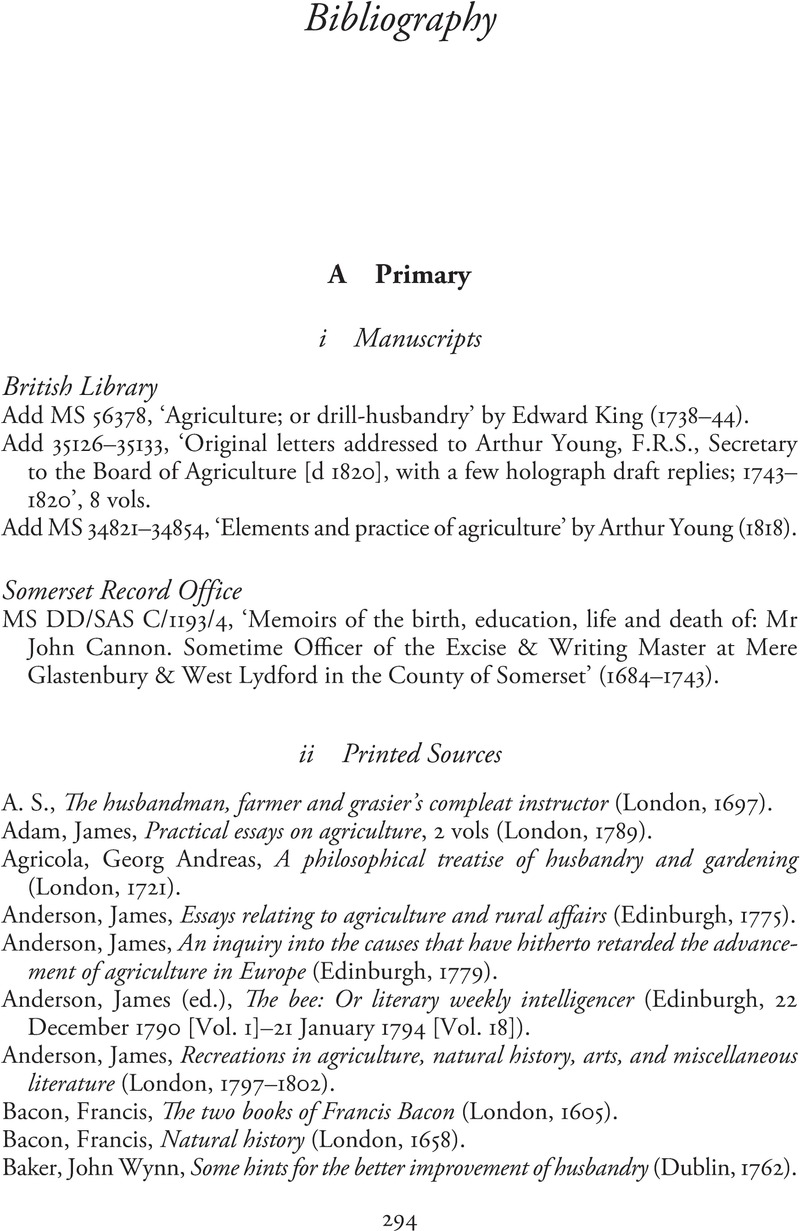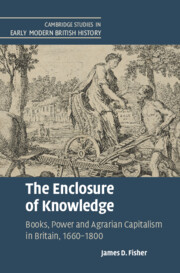Book contents
- The Enclosure of Knowledge
- Cambridge Studies in Early Modern British History
- The Enclosure of Knowledge
- Copyright page
- Dedication
- Contents
- Figures
- Tables
- Acknowledgements
- Notes
- Abbreviations
- Introduction
- Chapter 1 Rethinking Agricultural Books, Knowledge and Labour
- Chapter 2 Learning without Books
- Chapter 3 Standing on the Shoulders of Peasants
- Chapter 4 Learning without Labour
- Chapter 5 Dividing Head and Hand
- Chapter 6 Monopolising Knowledge
- Chapter 7 The Master Should Know More
- Conclusion
- Appendix
- Bibliography
- Index
- References
Bibliography
Published online by Cambridge University Press: 07 July 2022
- The Enclosure of Knowledge
- Cambridge Studies in Early Modern British History
- The Enclosure of Knowledge
- Copyright page
- Dedication
- Contents
- Figures
- Tables
- Acknowledgements
- Notes
- Abbreviations
- Introduction
- Chapter 1 Rethinking Agricultural Books, Knowledge and Labour
- Chapter 2 Learning without Books
- Chapter 3 Standing on the Shoulders of Peasants
- Chapter 4 Learning without Labour
- Chapter 5 Dividing Head and Hand
- Chapter 6 Monopolising Knowledge
- Chapter 7 The Master Should Know More
- Conclusion
- Appendix
- Bibliography
- Index
- References
Summary

- Type
- Chapter
- Information
- The Enclosure of KnowledgeBooks, Power and Agrarian Capitalism in Britain, 1660–1800, pp. 294 - 325Publisher: Cambridge University PressPrint publication year: 2022



